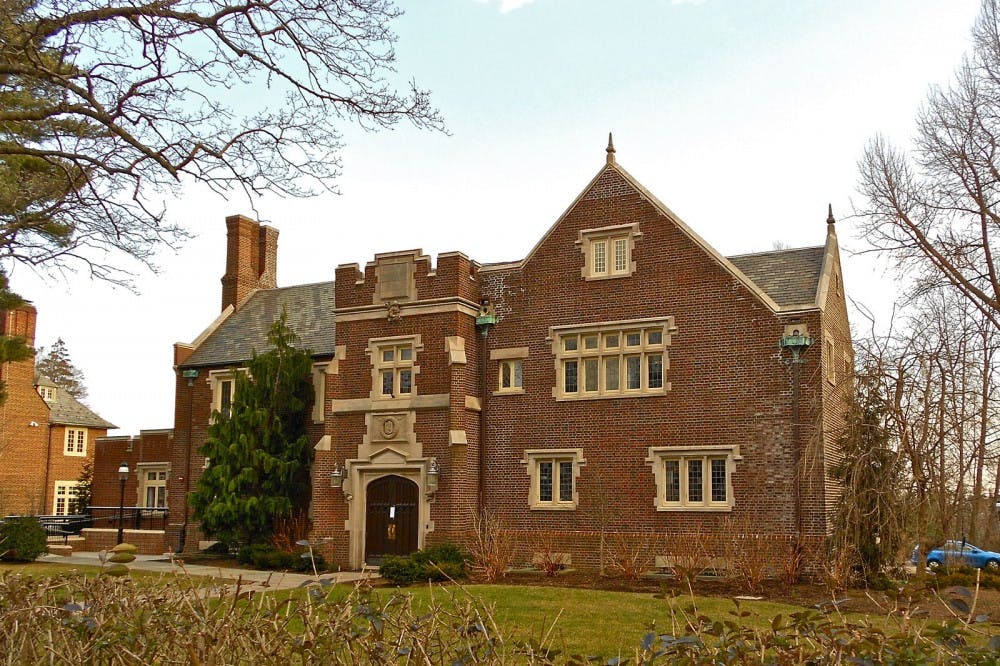Sign-in clubs are antithetical to the implicit, unstated goals of the University. In order to prepare students for the harsh, demanding social climbing that they will need to do to reach the pinnacle of their money-grubbing careers and donate vast sums to the University, it is essential that they experience isolating social behavior at an early stage.
The vast majority of us claim to be “sell-outs” or “obsequious snakes” or “selfish parasites” or “power-hungry sycophants” yet, last February, ONLY 74 percent of the Great Class of 2020 sold their souls to an inherently illiberal, exclusionary, and elitist system by bickering at least one of the five selective eating clubs (Cannon Dial Elm Club, University Cottage Club, Ivy Club, Tiger Inn, or Tower Club). The other 26 percent failed to recognize the benefits of being forced to be social within a toxic, shallow milieu.
In light of this failing, we are forced to conclude that there is no moral, ethical, or intellectual justification for signing in. While this may appear obvious to the 74 percent of us who chose wisely, in the service of our nation, it is important that we be benevolent and educate those poor souls who are blind to the truth.
The failings of the sign-in system are abundant. With limited space in this article, we shall address only the most egregious faults. Most heinously, the sign-in process allows sophomores to maintain their individuality and self-esteem. Unlike the formative Bicker process, which mandates and enforces a limited repertoire of social behavior, sign-in provides adequate space for creative expression and acceptance. Indubitably, those who undergo the sign-in process emerge still clinging to their naïve optimism and hope for a kinder world, which only serves to hurt their future earning potential.
On a more concrete note, rather than establishing social groups that are rigid, unyielding, and uniform in nature, sign-in clubs allow students from all socioeconomic classes to mingle freely during meals and social events. These sorts of interactions, while commended publicly by the University, are fundamentally counterproductive to the future career aspirations of these students. In the world at large, Princeton graduates mingle only with individuals who will increase their social and economic capital. From a free market perspective, to do otherwise would fail to maximize their personal utility. Evidently, every “social” interaction must serve to enhance the bottom line of their future earnings.
Look to the clear benefits of Bicker, however, and you will find exponentially different outcomes. Having your social worth calculated and displayed will only serve to benefit you as you pursue others within your social stratum. Otherwise, how would you know who will accept you as a “friend?” Knowing, as you do, that your worth is solely dependent upon the quality of the “social” circles that you belong to, the value of selectively defending the purity of such circles is obvious.
The value of Bicker to upperclassmen is no less important. The stimulation resulting from a late-night discussion of sophomores’ superficial qualities provides invaluable experience in making baseless snap judgements on people’s worth. In addition, the process of Bicker provides essential practice at developing a protective emotional barrier to prevent personal connections from conflicting with future efficient market solutions. An individual’s skill at emotionally-detached hosing is indicative of their future ability to dissolve unprofitable companies that are weighing down the performance of their private equity portfolios.
However, the banal sign-in clubs are not entirely doomed. A simple resolution would be the immediate abolishment of the “open” nature of sign-in clubs. The impetuous eagerness of the University to cater to narrow-minded “progressive” ideals will make this difficult, but we need not lose hope. Given that the University ethos fundamentally align with the selective Bicker clubs, this preposterous sign-in process cannot last.

In conclusion, we are not insinuating that all members of sign-in clubs are morally feckless, pusillanimous plebeians. A few of them have simply made a poor decision that will irrevocably “hose” their future careers. A select few of them are even aware of their depravity. To quote Mr. Sar C. Asam, a senior member of a sign-in club: “sign-in clubs are like participation medals. They prioritize diversity — a priceless value, in that it has zero economic worth.”
Students — and, to some extent, alumni — have absolute, independent control over whether or not sign-in clubs exist. We could abolish this philistine system tomorrow if we wanted to, but we, time and time again, choose to do nothing.
Charles Watt is a prefrosh intern at Goldman Sachs. Charles can be reached for questions at FBDB@princeton.edu. This article was heavily inspired by a similar article by Samuel Aftel.
Editor’s Note: This piece is satire. The real Charles Watt is a senior Chemical and Biological Engineering major from Acton, Mass. He can be reached at cwatt@princeton.edu.









